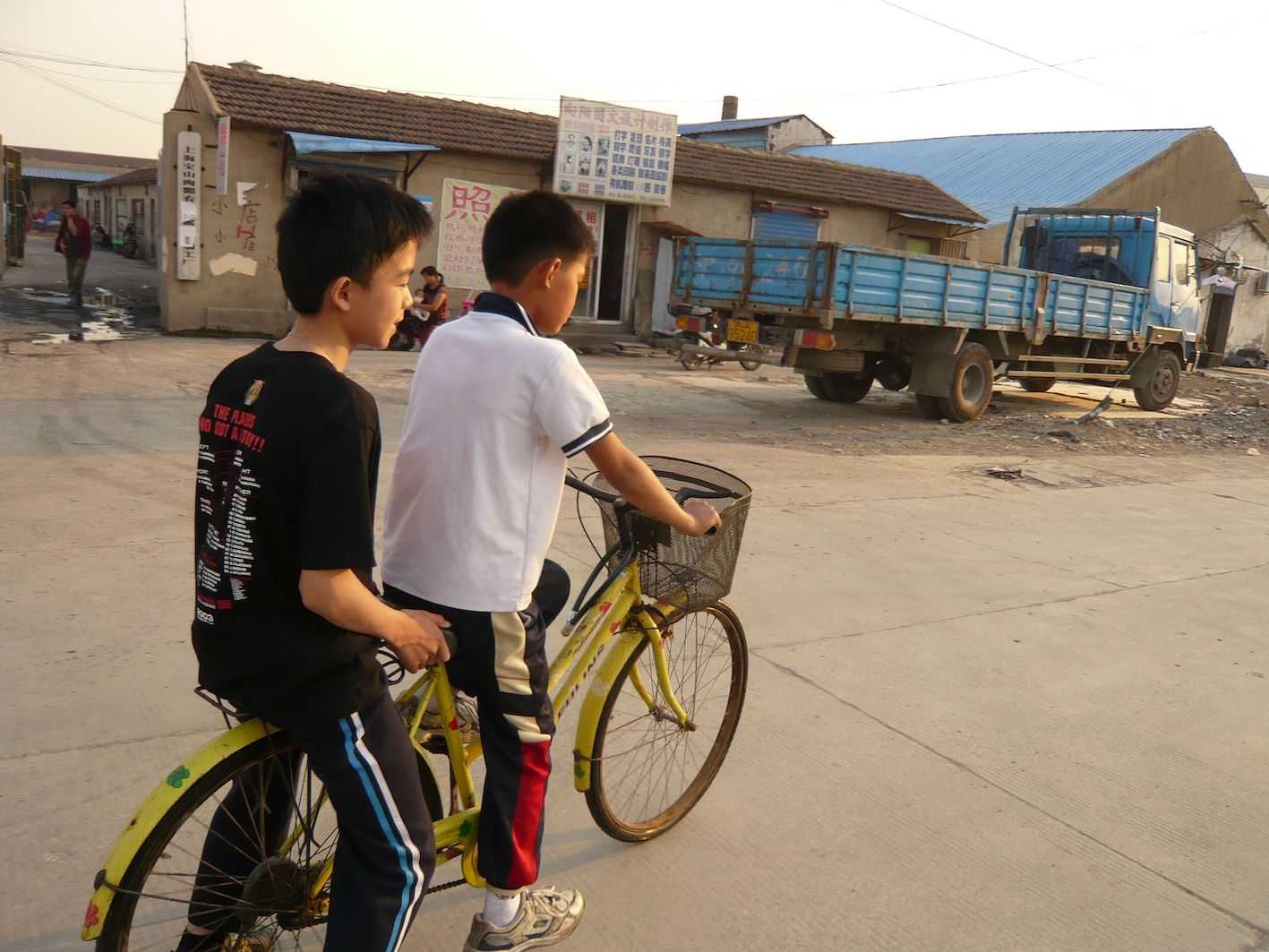Home>Rural migrant children in the Chinese public sphere

18.10.2023
Rural migrant children in the Chinese public sphere
This podcast is part of the European project called “China Horizons: Dealing with a resurgent China” and more precisely of the Work Package 2 (hosted at Sciences Po) devoted to the analysis of the “dynamics of Chinese society”. In this WorkPackage, we question the mainstream image of a Chinese society that is seen as a blown apart, backward and motionless society. We focus on the “opinions” expressed by the Chinese society on social media networks, during social conflicts, and during interviews.
In this episode of our series, we deal with a very specific topic: namely, the perception, by the Chinese society, of children of migrants coming from the countryside. As opposed to what was happening during Mao’s time, rural dwellers are allowed to move to urban areas to work today.
But because the Chinese government has maintained the household registration system, the “non local” citizens have limited access to public services (schools, vocational training, hospitals, and home owning for example) in their new place of residence. In particular, access to education is very difficult for migrants’ children because they are considered very different from the local children and the school doors are not always open to them.
Today, we are going to discuss this issue with Camille Salgues, a sociologist and anthropologist specializing in childhood studies, and Jean Louis Rocca, professor at Sciences Po, in charge of the WP2 of China Horizon DWARC project.
Listen to the interview (audio)
Quotes cited during the interview
Quote 1:
Title of the article: 暑期社会实践调查报告——关于农民工子女的教育问题 (Summer Social Practice Survey Report: the Education of Migrant Workers' Children)
Author: Xiong Ying,
Source: 今日南国 (The South of China Today), 2008-04-15
Quote 2:
Title of the article: 中国城市农民工子女心理健康研究述评 ( Mental Health for the Children of Farmers Who Worked in City in China )
Author: XIONG Meng ; YE Yiduo,
Source: 心理科学进展 (Advances in Psychological Science) 2011-12-15
Quote 3:
Title of the article: 进城农民工子女教育问题现状及对策 (Current situation and measures for the education of children of migrant workers in cities)
Author: Shen Nianyao
Source: 特区经济 (Special zone economy)
Date: 2007-08-25
Select bibliography
- A general perspective on the issue of Chinese migrant children:
Ling, Minhua. 2019. The Inconvenient Generation: Migrant Youth Coming of Age on Shanghai’s Edge. Stanford: Stanford University Press. - On Chinese migrant children’s everyday life: Salgues, Camille. 2021. “In the Midst of Rubble, Bordering the Wasteland: Landscapes of Ruins and Childhood Experiences in China”. China Perspectives 4: 31 40. Available online.
- On French “helplines”: Fassin, Didier. 2011. “Suffering Unveiled: Listening to the Excluded and the Marginalized”. In Humanitarian Reason: A Moral History of the Present, Didier Fassin (ed.). University of California Press.
- On France in the 1950s and “modernization”: Ross, Kristin. 1996. Fast Cars, Clean Bodies: Decolonization and the Reordering of French Culture. MIT Press.
- On the Chinese middle class: Rocca, Jean-Louis. 2017. The Making of the Chinese Middle-Class. Small Comfort and Great Expectations. New York: Palgrave Macmillan.
- On Chinese public opinion (audio recording): "From common to public: What tools for understanding opinion in contemporary China?", with Isabelle Thireau, EHESS-CNRS, Laurent Thévenot, EHESS, Camille Salgues, Sciences Po-CERI. Chair: Jean-Louis Rocca, Sciences Po CERI.
Interview by Miriam Périer, CERI.
Illustration:
Rural migrant children, Shanghai, China, 2008. Photo by Camille Salgues
The project “Dealing with a Resurgent China” (DWARC) has received funding from the European Union’s Horizon Europe research and innovation programme under grant agreement number 101061700.
Views and opinions expressed are however those of the author(s) only and do not necessarily reflect those of the European Union. Neither the European Union nor the granting authority can be held responsible for them.
Cover image caption: Rural migrant children, Shanghai, China, 2008. (credits: Camille Salgues)
Follow us
Contact us
Media Contact
Coralie Meyer
Phone : +33 (0)1 58 71 70 85
coralie.meyer@sciencespo.fr
Corinne Deloy
Phone : +33 (0)1 58 71 70 68
corinne.deloy@sciencespo.fr
